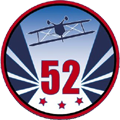


| Safety Wise | |
|
May 1999 |
|
|
Dear All,
As you know Kathy had me writing a Chapter safety column in our newsletter entitled "Safety Wise". This column is designed to allow me to pontificate to one and all and have you all stand back in amazement at my brilliant meandering...ok so maybe that is not true...but the fact of the matter is I do try to impart what I believe are important issues. Though Kathy's "mishap" (official NTSB term by-the-way), has not had an official attributable cause, I am sure that each of us has taken a hard look at how we do this "acro thing". Such feelings are natural and if properly acted upon can actually enhance our safety. Accordingly, I am going to review a few basic safety items. These are general and are NOT meant to be construed as derived from any insider info relating to the mishap. As we do not have a newsletter in the mail right now I think it would be appropriate as Safety Officer to harp on some critical areas which we all need to remember. First off, if you have not read my previous two articles please do so. Alex Belov has done a yeoman's job on our 52 website and they are there for all to see. Ok here are three concepts I want to review...The three "F"s of the Flight Prep: Fluids, FOD, and Flying.
Fluids: Check the damn gas level. Not only visually but stick it and sample it. I have heard the arguments about how an aircraft must sit for X minutes before the water can collect in the sump...spare me..just do it. It is taught by any good flight instructor and is required by the Pre-flight duties in the FARs so get in the habit. Check the oil. Just because it was there before does not mean it will be there later. Most importantly COMPARE all fluid levels with what you think you have burned...insure that the values added do make common sense.
FOD: Foreign Obstacle Debris. FOD can be anywhere. Not only in the plane but outside as well. The FOD check is critical in an aerobatic mount. Especially in a Pitts where, as everyone knows, everything ends up in the tail. Have a bright mini-mag flashlight handy at all times, so that when peering into the rear fuselage on a bright day you will be able to clearly see if any items are hiding and waiting to "get you" back there. I vacuum the rear of the aircraft each time I take it out of the hanger on the First Flight Of the DAY (FFOD). Check for FOD on your walkaround, an item near the wheels or prop can end up being an embarrassingly expensive oversight. Flying: "Flying" means three things, are you personally ready, do you have a plan and is the sky ready for you. Being personally ready means, insuring that you are mentally and physically prepared for an emergency. Have you realistically prepped for a bail out, or engine failure 100 feet off the ground, or engine fire at altitude etc. In other words is your mental frame of mind cutting through the "soaring with eagles in the beautiful sky" crap and facing the very real possibility you may be committed to a life threatening situation in the immediate future. If not, don't fly until you take time to prepare yourself. This does not mean you fly "scared"...it does mean you fly "aware" at all times. If you notice most professionals (i.e. Sean Tucker) will literally go into their own world of concentration, blocking out all distractions so that they are fully focused before flying. (Of course if you stay in that world a little too long - say more than a week - the men in white coats lock you up). BEFORE engine start while strapping in is when I totally focus on all eventualities. ! Take your time. Check your equipment and empty your pockets of stuff that may come loose. If traveling with a passenger this is your time to fondle all parts of their body to insure that they too are "acro clean". Remove jewelry that may come loose. Fake Rolex watches have a habit of the outer face ring coming off, (don't ask me how I know). The Military teaches "Plan the Flight, Fly the Plan". What they mean is, you should never just take off to do something that you have not carefully thought about. In other worlds visualize everything that you will do before you do it. Visualize it going wrong, visualize it going right. When you fly, only then you then will have an idea of when you should stop and RTB (return to base). Have your Bingo (minimum fuel levels) pre-computed. Don't guess...know. Insure that the aircraft is in CORRECT weight and balance, listen to me here...DON'T ASSUME. Knowing what your W&B is will give you an idea of what you can expect when losing an engine, when the aircraft goes into a spin, or when coming in low and slow to land. Is the sky ready for you? By now you should know your limits regarding meteorological conditions. Crosswinds, gusty conditions, low ceilings, poor viz etc. If traveling cross country have emergency alternate airfields plotted out. Don't launch if you don't feel 100% right about it. That is your common sense talking to you. As the old saying goes it is much better to be regretting the fact you are not flying than the other way around. HERE IS THE BOTTOM LINE: Common sense is not so common. Make that a lie in your personal flying habits. Do not talk to or have anyone talk to you during a preflight. Execute the preflight IN THE SAME way each and EVERY time. Do not cut corners no matter what the time constraint. Remember the preflight is your last chance for romance before committing yourself to destiny. Commit to buying Ron Spencer quality wine (no cheap stuff) at all post flight gatherings. Take care and fly safety wise! -RS- Capt. Ron Spencer can be contacted via email at gwiz@idsi.net |
|
| .. | |
| Previous Safety Wise articles: | |
| [No Ordinary Pilot, Feb. 99] [A Weighty Situation, Nov. 98] |
|